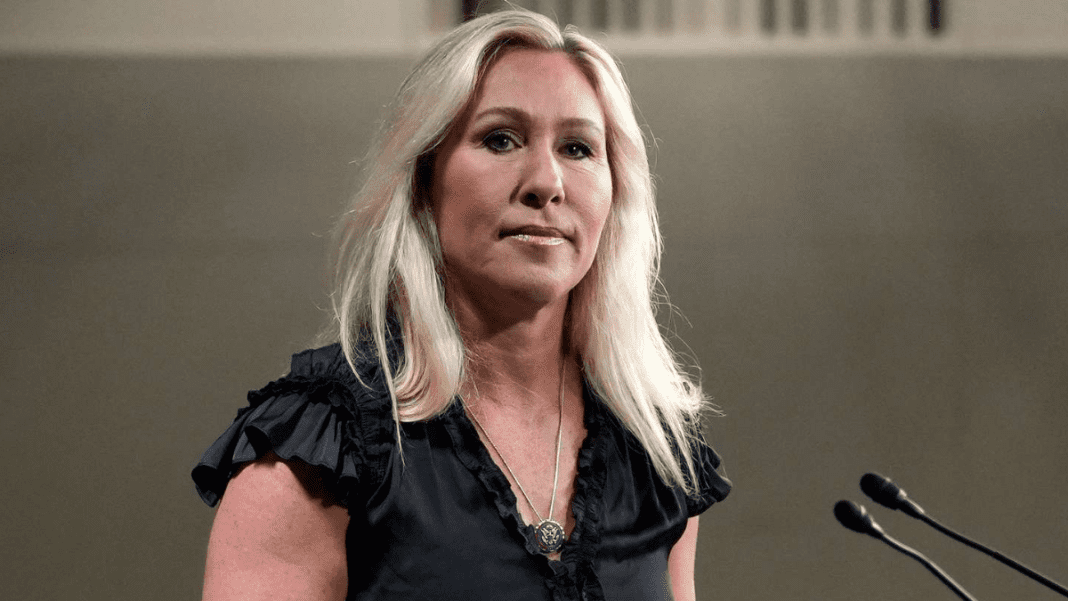Rep. Marjorie Taylor Greene has caused a stir this week, claiming that many men in her party cannot handle women who speak their minds. She says that assertive women are often sidelined, even when they are trying to make meaningful changes. Greene described many male colleagues in Congress as “weak” and said they are intimidated by women who show leadership and determination.
According to Greene, these men often marginalize women who are active and vocal. She argued that while strong women in the GOP want to achieve results, male members sometimes try to push them aside instead of supporting their efforts. This dynamic has been especially noticeable under the leadership of House Speaker Mike Johnson.
She also pointed to the experiences of women in her party who hold leadership positions but are not given real power. This marginalization, she said, is frustrating for women eager to make a difference in Congress. She emphasized that her constituents voted for her because she challenges the status quo and they expect her to speak boldly and act independently.
Pushing for Transparency and Policy Change
Greene has also been vocal about transparency on sensitive issues. She has pushed for the release of government files related to Jeffrey Epstein, a move that few members of her party have supported. Greene is one of the few Republicans backing a bill by Rep. Thomas Massie that calls for the full release of these documents.
Despite her efforts, she said her proposals have largely been ignored by party leadership. She expressed frustration with colleagues who do not support her push for transparency, insisting that she remains loyal to her base and committed to keeping promises to her constituents.
In addition to transparency, she criticized her party for lacking a clear plan to address significant policy issues, particularly in healthcare. She noted that no Republican plan exists to fix problems in the health insurance industry, which she says was disrupted by previous laws. This lack of focus on major issues, she suggested, is a source of frustration and reflects poorly on party priorities.
Marjorie Taylor Greene backs full Epstein files release citing need for justice for victims
Criticism of Party Dynamics
Greene openly criticized the overall dynamics within her party, saying that male leaders often feel threatened by women who speak out. She contrasted this with the administration of President Donald Trump, noting that he supported many women in leadership roles and had a “strong, dominant style.” Greene argued that strong women in Congress today do not receive the same level of support from their male colleagues.
She also highlighted the experience of Rep. Elise Stefanik, who, according to Greene, was given what she called an “honorary” role after losing her bid to become ambassador to the United Nations. Greene suggested that Stefanik’s placement in this role was symbolic rather than a recognition of her abilities, reflecting a broader pattern of marginalizing strong Republican women.
Greene said her bold approach is intentional and aligns with her district’s expectations. She repeatedly emphasized that her voters support her because she is outspoken and unafraid to confront her own party. During interviews, including one on a popular podcast, Greene criticized Washington priorities, noting that she could not find either the Epstein files or a clear Republican plan for health insurance reform.
Her comments have drawn attention to the role of women in leadership within the GOP and sparked conversation about how assertive women are treated in politics. Greene’s statements underline the challenges strong women face and highlight the ongoing tension between party leadership and outspoken members.





